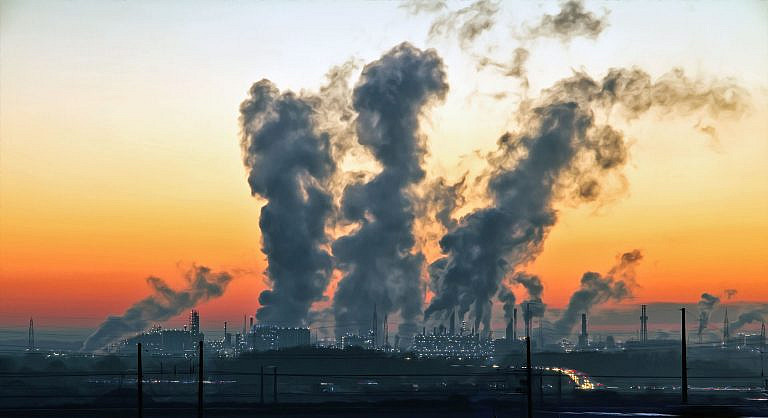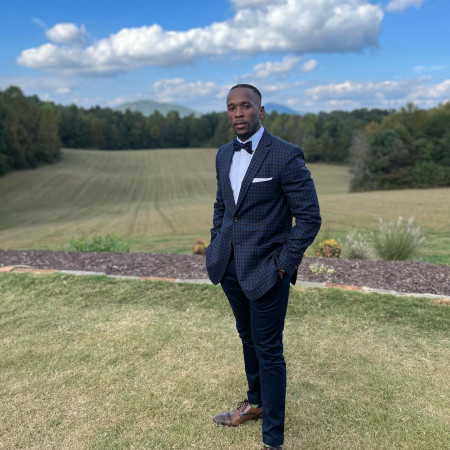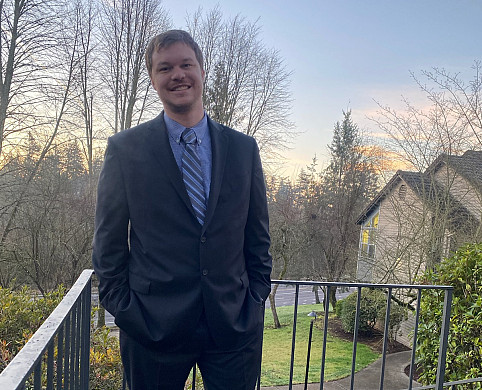Air, Water and Land

A maze of statutes and regulations address the quality of our air, land, and water such as the Clean Water Act, Clean Air Act, and hazardous waste statutes. International treaties also govern regulation of pollution among countries or regions.
Practitioners working in this area are well-versed in complex regulatory and enforcement schemes that environmental quality and pollution cleanup.
Coursework
This will be an experiential course in which students engage in legal problems that lawyers handle to develop practical skills that will be useful regardless of what practice area students eventually choose. In this summer course using environmental facts and laws applying to Professor Ferrey’s real-world ‘Modules’/problems, students represent different sides in different disputes representing NGOs, regulated companies, or government agencies responsible for clean air, developing applicable skills:
- Discerning the federal/state legal split as to which level of government can regulate what aspects of the environment
- Re-argue in class the most cited Supreme Court precedent this century (a Clean Air Act case) using the actual briefs from the case, with legal teams on both sides of the case
- Navigate recent Supreme Court restrictions on the ability of government agencies (EPA) to regulate U.S. air emissions that cause climate change
- Explore the revitalization of common law creates claims on air pollution and climate
- As a law firm, try to avoid our client NGO’s air claim against a government agency getting tossed out on procedural grounds that the U.S. DoJ raises against any NGO environmental litigant, and how we avoid that as well as to recover our attorney fees from litigation
This course uses the Clean Water Act as the basis for a detailed consideration of a “command and control” regulatory program. Similarities and differences with the Clean Air Act and the Resource Conservation and Recovery Act are noted along the way.
This class takes an in-depth look at our greatest global environmental challenge, climate change, through a discussion of the international treaty regime.
It will begin with an overview of climate science and a discussion of the existing and expected impacts of climate change. Next, the course will discuss the United Nations Framework Convention on Climate Change (UNFCCC), the Kyoto Protocol, the Paris Agreement, and the associated Katowice rulebook. Time permitting, the course will discuss related hot topics such as climate and pipeline litigation and the role of non-state actors.
This class will discuss U.S. law and policy. It will begin with an overview of climate science and a discussion of the existing and expected impacts of climate change. Next, the course will discuss federal laws, regulations, and policies that regulate greenhouse gases and otherwise address climate change impacts. The course will then discuss state and local approaches to address climate change.
The class will also discuss climate change litigation in federal and state courts. Time permitting, the course will compare U.S. approaches to climate change law and policy in other countries.
This course examines how our environmental protection statutes are enforced through civil means (criminal enforcement is the subject of a different course). Topics include civil enforcement, administrative enforcement, citizens’ suits, and the mechanics of actions against the Government under the Administrative Procedure Act.
While some attention is paid to state enforcement and relationships between state and federal systems, the focus is mainly on environmental protection statutes administered by the EPA. Because of the procedural emphasis, this course can be useful not only to students with an interest in environmental law, but also to those interested in other regulatory schemes.
Students are also encouraged to take Environmental Prosecution when it is offered for focus on criminal remedies. Each class is also excellent on its own for a study of remedies in environmental cases.
Environmental Law is an essential course for anyone wanting to practice in this field.
This course provides a survey of federal environmental laws including the National Environmental Policy Act, the Endangered Species Act, the Clean Air Act, the Clean Water Act, and federal statutes dealing with hazardous substances.
Eating is arguably the most intimate relationship we have with the natural environment. It is a necessity that defines not only survival and human health, but also social values. This intricate web of needs and values has been recognized throughout the ages from Hippocrates, “the father of medicine,” admonishing, “The wise man should consider that health is the greatest of human blessings. Let your food be your medicine and your medicine be your food,” to the French revolutionary lawyer and the author of The Physiology of Taste, Jean Anthelme Brillat-Savarin, stating, “Tell me what you eat and I’ll tell you who you are.” As both Hippocrates and Brillat-Savarin recognized, implicit in the act of eating is the norm of consent in which the consumer of a food bases the act of consumption upon an understanding of the facts and implications of consuming that food.
The industrial agriculture system is also a fundamental cause of our current environmental degradation.
This class will provide an initial historical, legal and policy framework for industrial food and agriculture in the United States. The majority of the seminar will then broach this framework in the context of a variety of twenty-first century issues, with an emphasis on the connections of our food system to the natural world. Issues covered will include: food safety; labeling; pesticides; factory farms; organic standards; genetically engineered food and crops; and aquaculture.
This course examines the complicated intersection between law and science in managing and protecting the environment. Using a variety of environmental and natural resources statutes as examples, it explores integration of law and science in setting regulatory standards; the process of making scientific determinations and resolving disputes involving science; and the challenges of implementing environmental regulations given scientific uncertainties, resource limitations, and political controversy.
The course also examines specific statutes and topics such as the Data Quality Act; disputes involving science under the Federal Rules of Evidence, adaptive management, scientists as advocates, and science and law in the media. The course will look in particular at how the Trump administration deals with issues involving science. The class grade is primarily based on a paper.
We also offer courses useful to students in any type of environmental practice such as Environmental Litigation, Environmental Mediation and Negotiation, Environmental Law Moot Court, Administrative Law, and the Supreme Court and the Environment. Students may also opt to do an individual research project (paper) on a topic of interest in this area.
Alumni on the Front Lines
 Keller Rohrback, Complex Litigation Group
Keller Rohrback, Complex Litigation GroupI work to hold corporations responsible for messes they make in our environment and the damage they cause to our communities and natural resources. I had the privilege of representing the State of Oregon in its precedent-setting case against Monsanto related to the damage its PCBs have caused in Oregon.
 Assistant Regional Counsel, Environmental Protection Agency, Region 6
Assistant Regional Counsel, Environmental Protection Agency, Region 6I’m making a difference in the Texas and Louisiana region. Low-income and minority communities here are historically overburdened and underserved. Working on hazardous waste, Clean Air Act and Title VI issues, I advance Environmental Justice, maximizing protection for these communities.
 Associate at Beveridge & Diamond
Associate at Beveridge & DiamondI enjoy working in the dynamic field of environmental law and becoming well versed in emerging contaminant, odor, and species issues so that I can effectively represent my clients.
Doing the Work
Apply your classroom knowledge to real air, land, and water quality issues through our on-campus clinics and institutes:
Earthrise Law Center Global Law Alliance Green Energy Institute
Featured News
Elijah Savage: 2023 Wyss Scholar will Focus on Connections between Land Conservation and Imperiled Species
Elijah (Eli) Savage JD ’24 was selected as one of two 2023 Lewis & Clark Wyss Scholars. He will focus on connections between land conservation and imperiled species with the Center for Biological Diversity in the summer of 2023.
Environmental, Natural Resources, and Energy Law is located in Wood Hall on the Law Campus.
MSC: 51
email elaw@lclark.edu
voice 503-768-6784
Environmental, Natural Resources, and Energy Law
Lewis & Clark Law School
10101 S. Terwilliger Boulevard MSC 51
Portland OR 97219

